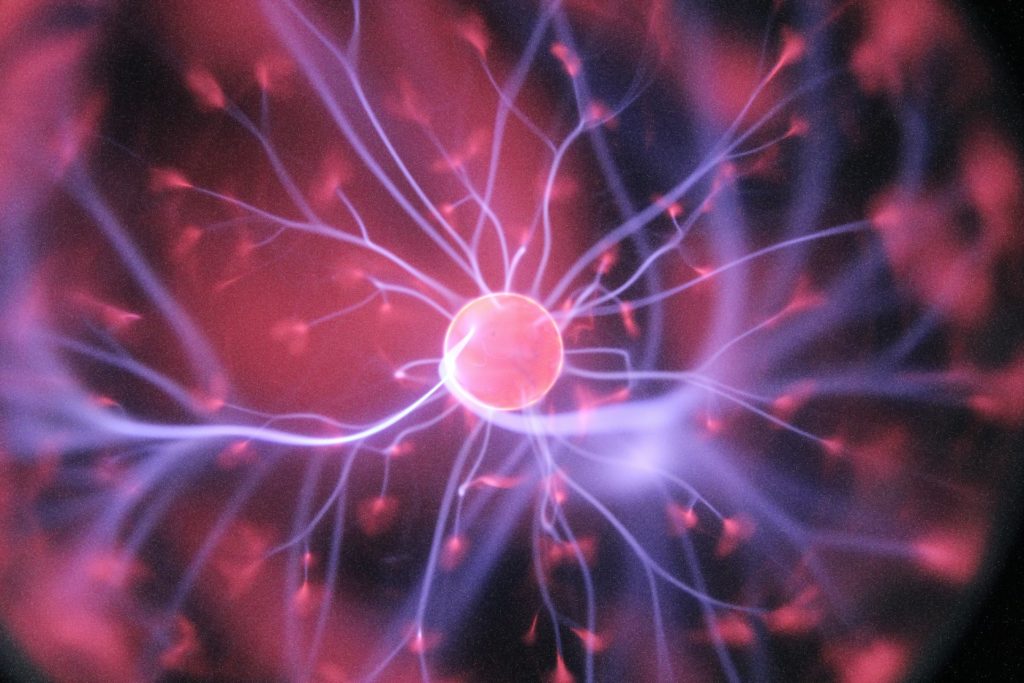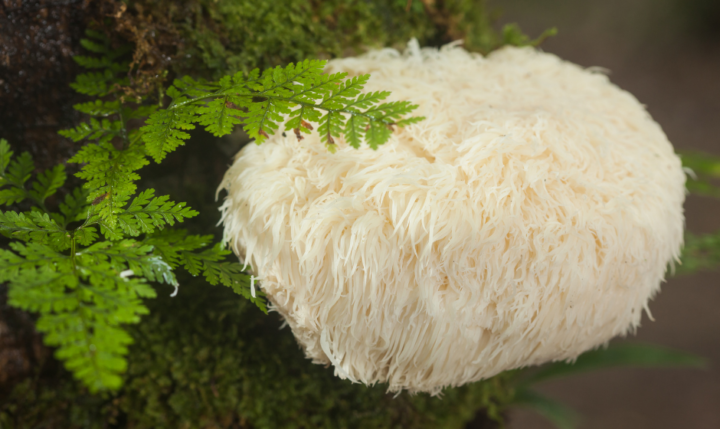Lion’s Mane Neurogenesis Study: What It Means for Brain Health and Function
Lion’s mane mushroom (Hericium erinaceus) has long been studied for its potential brain health benefits. Some research suggests that a main compound in H. erinaceus called erinacines may increase the production of nerve growth factor (NGF)*—a protein that helps nerve cells, like the neurons in the brain, grow and reproduce. This could be why other studies and trials show that taking lion’s mane mushroom extracts may improve memory, reduce dementia symptoms, and enhance cognitive function.*
A recent study in the Journal of Neurochemistry uncovered one possible explanation for how lion’s mane’s apparent brain benefits. Researchers from Korea and Australia collaborated to investigate how brain cells react to extracts from lion’s mane mushroom fruiting bodies and found that they caused an increase in neurotrophic factors, which had a significant impact on brain cell growth.

Neurotrophic Factors: What Are They, and Why Are They Important?
Neurotrophic factors are a group of proteins that support the specialization, growth, and survival of neurons in the brain and central nervous system. These proteins also promote the brain’s ability to rearrange or create new connections between neurons, a process known as neuroplasticity.
So far, scientists have discovered four neurotrophic factors:
- NGF
- brain-derived neurotrophic factor (BDNF)
- neurotrophin‐3 (NT‐3)
- neurotrophin‐4 (NT‐4)
Of these, most lion’s mane studies focus on how H. erinaceus affects NGF and BDNF.
NGF helps nerve cells like neurons grow and increase in number[1] and protects them from deterioration, while BDNF promotes the growth of new nerve cells and synapses.[2] By keeping brain cells healthy and supporting communication between them, NGF and BDNF play key roles in learning and memory. But both proteins decrease with age,[3] which can lead to cognitive impairment and neurodegenerative disease.
Using synthetic treatments to replenish neurotrophic factors could, in theory, prevent or slow the development of memory loss and dementia. But it’s hard to make these proteins in a lab, and they don’t last very long after they’re synthesized. Even if they did, the molecules are too big to cross the blood-brain barrier—which is why natural neurotrophic factors are produced inside the brain.
Here’s where lion’s mane mushroom’s brain benefits get interesting: erinacines can enter the brain,[4] likely because the molecules are smaller than those of neurotrophic factors. This makes lion’s mane extracts a potential source of compounds that could be used to treat age-related cognitive decline and other brain diseases—or even brain injury.
Lion’s Mane Extracts and Neuron Growth: Potential for Brain Repair?
To test the specific effects of lion’s mane mushrooms on brain cells, researchers in the Journal of Neurochemistry study put dried mushroom fruiting bodies through both water and alcohol extractions and collected six samples, each with different amounts and types of compounds.
They also performed a further extraction that isolated four individual compounds:
- hericene A
- corallocin A
- N-de phenylethyl isohericerin (NDPIH),
- 4-[3′,7′-dimethyl-2′,6′-octadienyl]-2-formyl-3-hydroxy-5-methyoxybenzylalcohol
(Yes, that last one made us go 🤯, too…)
Lion’s Mane and Neuron Growth
The researchers tested the initial water and alcohol extracts on rat brain cells and found that all six affected the growth of neurites—hairlike projections that carry impulses between neurons and allow them to communicate. The treated cells had at least three times as many neurites as controls, and the neurites were twice as long. All four compounds from the second extraction also increased the number and length of neurites without any evidence of toxicity.
Lion’s mane mushroom also had an interesting effect on growth cones, the structures at the end of neurites that direct their growth.[5] Researchers discovered that four of the initial extracts as well as NDPIH increased growth cone size by two to five times in treated brain cells. Bigger cones offer more potential for connections to form between neurons.
Together, these findings suggest that specific H. erinaceus extracts may be able to improve connections and communication between brain cells and potentially benefit learning, memory formation, and memory recall throughout life.

A New Neurotrophic Pathway
Neurite growth was so impressive that researchers set out to determine how the lion’s mane mushroom extracts may have stimulated it. To do so, they tested the effects of NDPIH on certain genes and proteins in neurons.
Neurons contain a gene called TrkB that tells the cells to make receptors for growth factors like BDNF.[6] When BDNF binds to these receptors, it activates enzymes called ERK1 and ERK2, which help neurites grow and synapses form.
The experiments showed that NDPIH can affect neurite growth even in cells without BDNF receptors, suggesting that it works differently than BDNF but produces the same results. Since ERK1 and ERK2 are also involved in forming and recalling memories, developing treatments from NDPIH may be another way in which lion’s mane could support better brain function.[7]
Lion’s Mane Brain Benefits for Memory
Researchers put this potential for memory enhancement to the test in another phase of the study. They gave groups of mice either a single H. erinaceus extract, several combined hericene A extracts, or a cognitive-enhancing drug and compared their performance against a control group on two memory tests.
Mice treated with lion’s mane mushroom extracts showed evidence of better short-term memory than the controls and performed similarly to the mice treated with the cognition enhancer. When researchers examined the brains of the treated mice, they found increased BDNF levels in areas of the brain responsible for memory, learning, reasoning, and problem solving. They also discovered that lion’s mane extracts appeared to increase the number of synapses, suggesting improved communication between neurons.
The Future of Lion’s Mane and Brain Health
This unique study brings medicinal mushroom science one step closer to figuring out how fantastic fungi like lion’s mane could improve brain health. If the results could be replicated on human neurons (and in actual humans), it’s possible that extracts like hericene A from lion’s mane mushroom could be used in treatments for cognitive impairment and neurodegenerative disease.
Until then, you can still give lion’s mane a try for its other brain health benefits, like better focus, improved cognitive performance, and lower anxiety levels.*


